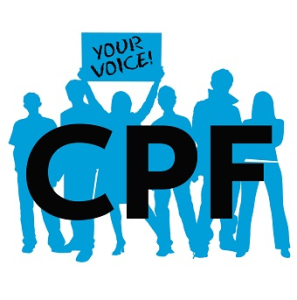
Visit vote.gov to begin the voter registration process.
Select your state or territory. Depending on its rules, you will find instructions on how to register online, by mail, or in person at your local election office.
Other ways to register to vote
- Download the National Mail Voter Registration Form. You can fill it out onscreen and print the completed form, or print the blank form and fill it out by hand. Remember to sign the form before mailing it to the location listed for your state.
- Check with local government offices to see if you can register in person.
- Find your department of motor vehicles office.
- Locate a nearby armed forces recruitment center.
- Contact state and county public assistance offices such as SNAP/food stamps.









What to Know About the US Elections Heading Into 2024
With the 2024 presidential election campaign season quickly approaching, many observers are already anticipating what may come. Since the last presidential election in 2020, Georgia and Texas made controversial changes to their election laws, which could impact voter turnout in those states. And Democrats and Republicans alike have used complaints about voter suppression or the accuracy of the vote count as a wedge to motivate their voters to the polls — resulting in a rising distrust of elections.
At the third annual collaboration between the Baker Institute Presidential Elections Program and The Carter Center, experts on both sides of the aisle explored these issues and more with a focus on what the 2024 presidential election could bring. In addition, the event featured a lunchtime discussion titled "A Legacy of President Jimmy Carter: Free and Fair Elections Around the World."
4 hours seminar on the run up to the 2024 elections
Session I — Effects of Election Law Changes on Voter Turnout in Georgia and Texas
Session II — The Poisonous Politics of Election Denial
This class is a 4 hour mix of policy advocates and journalist.US Voting Access and Fraud
Davidson College via edXOverview
As the US general election approaches, there is a firestorm of rhetoric around access and fraud. Major legislation changes, court rulings and political views continue to flood the media leading up to this election. But what is true in all of this? And what should you believe going into the election?
In this 2-week course, you’ll better understand the history of voting rights in the US, what is meant by the terms “access” and “fraud” – and why these have become so politicized.
Hear from political scientists who study these matters, journalists who have reported on it for decades and election officials who describe what its like to be in charge of carrying out free and fair elections in their jurisdiction.
Join a vibrant community of fellow voters who are interested in exploring these questions together. Share your experience and see how it compares to others around the country.
Courses offered via edX.org are not eligible for academic credit from Davidson College. A passing score in a DavidsonX course(s) will only be eligible for a verified certificate generated by edX.org.

Citizen Politics in America: Public Opinion, Elections, Interest Groups, and the Media
Overview
Public opinion has a powerful yet inexact influence on elected officials. Politicians risk their careers if they ignore it, yet its power is not easy to capture nor quantify. This course will look at how political parties, campaigns, social movements, special interests, and the news media all play a role in influencing public opinion.
We’ll examine the attributes of public opinion, how polling attempts to measure those attributes, and how they impact the decisions of policymakers. We’ll address the unique features of the two-party system in the U.S., how those parties realign themselves in response to shifting norms, and how their candidates are vetted behind the scenes before the start of a campaign.
Outside of the formal organization of party politics, groups representing various interests aim to affect a change through the political system. Special interest groups resemble political parties, but while parties try to influence elections, groups concentrate on gaining influence over policies. Meanwhile, social movements take place outside these established institutions, often in the form of protest demonstrations and rallies. All of these interests are filtered through the news media, which plays a critical role in shaping people’s images of politics.
This course will help you to understand how these forces shape American politics, from “invisible primaries” to election day and beyond.
